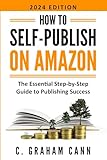How Plays are Written
Plays are not written -- they are rewritten. The longer the dramatist walks, eats, sleeps, and lives with his characters, the more readily they will spring from his pen and live in his work

In this lies the advantage of the creative, as distinct from the critical, literature of the stage. The dramatic author writes at leisure -- and regrets in haste. The dramatic critic writes in haste, and regrets at leisure -- a leisure so lengthy that his repentance rarely appears.
Twenty years of association with professional workers have afforded a fair opportunity to observe the process that distinguishes the earnest labor of the successful dramatist from the easy effort of the more confident and self-assertive amateur who fails.
It takes five years to write a good play. A good play has often been written in five days, you will maintain. But mark this: honest study of dramatic art; months of evolution and revolution of the plot; constant subjective association with the characters of the play, during which each has lived, spoken, and acted with intense reality; all this must precede, and prepare the mind for the comparatively trivial work of the hand.
The longer the dramatist walks, eats, sleeps, and lives with his characters, the more readily they will spring from his pen and live in his work.
Think what a good play implies:
Knowledge of human nature, experience of life and art in general, and the stage in particular.
Philosophic insight, mechanical instinct, poetic fancy, sensitive sympathies, passionate fervor, and vivid imagination, thoroughness in preparation, industry in elaboration, conscience in revision, courage in excision, and, dominating all this, that breadth of mind which breeds humility, and that depth of heart whose understanding love goes out in charity to all mankind.
How rarely we ever see a play!
It is generally supposed that the stage is devoted to the production of plays. How laughable!
Another general supposition gone astray. The stage presents about one hundred pieces to one play.
A piece is no more like a play than a manikin is like a man. A play is a creation resulting from that succession of processes by which nature converts conception into organization, and, through the pangs of labor, accomplishes a birth; a piece is a contrivance concocted by the more or less clever conjunction of amusing, but, generally, irrelevant, parts.
Plays, like lives, are evolved; pieces, like toys, arc manufactured.
A play is the natural growth of a rational theme into dramatic form—developing situations that are the consistent consequence of the contact of certain legitimate types of characters, with manifestly possible turns of circumstance; a piece is the artificial "putting together" of individuals and incidents, without reference to reason or probability.
The aim of a piece is to titillate and astonish the general ignorance of the mass; the purpose of a play is to illustrate human life in such a manner as to charm arm, touch, enlighten, and enlarge human hearts.
Pieces amuse idle brains; plays delight active ones.
Pieces divert the puerile mind; plays enrich the manly mind. No play can possess the fundamental requisites of unity, coherence, and consistency unless it has some one distinct and focal purpose. This focal purpose, about which all the other elements of the play must adjust themselves, with due regard for their respective importance, may be either the presentation of some great event taken from life or literature, or the illustration of some typical personality, whose characteristics are of supreme importance, or the demonstration of some philosophic idea, the truth of which it is the aim of every action to expose.
Given a great event, the work of the dramatist is then to select such types of character, and such subordinate incident as may most firmly hold the attention of the audience, and most naturally lead up to the crowning situation, presenting the event that was the primal cause of his endeavor.
When a personality becomes the prompting impulse of a play, the author’s chief concern is then to invent a story that will supply incidents consistent with his characters, and affording the best opportunity of developing and displaying the typical traits of the individuality that gives focal interest to his work.
A play the conception of which is due to an idea demands of its author a succession of incidents, which are the natural consequence of the relations of its characters, and which, by their unfolding, emphasize, with cumulative force, the rationality and ethical value of the theme, which is the germinating motive of his creation.
The play of incident makes its chief demand upon the mind of the mechanic.
The play of character calls forth the faculty of the philosopher.
The play of ideas implies, in more or less degree, the sublimating imagination of the poet, and the illuminating intuition of a seer.
The master playwright combines the constructive faculty of the mechanic and the analytical mind of a philosopher with the aesthetic instinct of a poet and the ethical ardor of an apostle.
As Browning so nobly recommends, let us "see all, trust God, nor be afraid."
Let us go, unbiased and unabashed, from the sanctuary of the saint to the den of the sinner.
Let us seek, with equal mastery of self, prison, or palace, the house of religion, or the hail of folly. Let us enter, in the searching spirit of philosophy, every place, high or low, where wrong is unmasked or right revealed, testing all, despising nought, that we may acquire that knowledge of human nature essential to interpret man to men.
Let us plot and re-plot, write and re-write, design, undo and re-do, with tireless patience and dauntless will, that we may develop that command of the resources of our art essential to capture the heads of the few and the heart of the many; for then, and not until such a study of man is combined with such a labor of mind, will there exist a worthy corps of American playwrights.
Read These Next
Selling Books Through Interviews
William A. Gordon and Stephen Schochet are Hollywood authors and storytellers who, between themselves, have done over 600 radio interviews. Although they work independently, they often share information about specific shows and compare strategies for getting booked. Here they share some of the lessons they have learned about selling books and other media through radio interviews.
Beginning and Ending Your Story
Elinor Glyn, in the early half of the 20th century, considered the "world’s greatest writer of love stories." Over the course of her writing career she published 31 novels and had 9 movies made from her work. She was criticized rather frequently by the literary press, as are many popular writers today. In 1922, The Author’s Press put out a four volume course written by Glyn on how to write novels, stories and screen plays. This is an excerpt from the second volume.
Leveraging Writers Conferences to Build a Writing Career
With a good mindset and a bit of research and preparation, aspiring authors can use writers’ conferences to advance their careers. Here are some tips for making the most of these events.







 Self-Publishing For Dummies (For Dummies: Learning Made Easy)
Self-Publishing For Dummies (For Dummies: Learning Made Easy) Self Publishing To Amazon KDP In 2023 - A Beginners Guide To Selling E-books, Audiobooks & Paperbacks On Amazon, Audible & Beyond
Self Publishing To Amazon KDP In 2023 - A Beginners Guide To Selling E-books, Audiobooks & Paperbacks On Amazon, Audible & Beyond How to Self-Publish Your Book: A Complete Guide to Writing, Editing, Marketing & Selling Your Own Book
How to Self-Publish Your Book: A Complete Guide to Writing, Editing, Marketing & Selling Your Own Book Self-Publishing: The Secret Guide To Becoming A Best Seller (Self Publishing Disruption Book 2)
Self-Publishing: The Secret Guide To Becoming A Best Seller (Self Publishing Disruption Book 2) Self Publishing To Amazon KDP In 2024 - A Beginners Guide To Selling E-books, Audiobooks & Paperbacks On Amazon, Audible & Beyond
Self Publishing To Amazon KDP In 2024 - A Beginners Guide To Selling E-books, Audiobooks & Paperbacks On Amazon, Audible & Beyond Write. Publish. Repeat. (The No-Luck-Required Guide to Self-Publishing Success)
Write. Publish. Repeat. (The No-Luck-Required Guide to Self-Publishing Success) How to Self-Publish on Amazon: The Essential Step-by-Step Guide to Publishing Success
How to Self-Publish on Amazon: The Essential Step-by-Step Guide to Publishing Success 14 Steps to Self-Publishing a Book
14 Steps to Self-Publishing a Book Self-Publisher's Legal Handbook: Updated Guide to Protecting Your Rights and Wallet
Self-Publisher's Legal Handbook: Updated Guide to Protecting Your Rights and Wallet How To Self-Publish A Children's Book: Everything You Need To Know To Write, Illustrate, Publish, And Market Your Paperback And Ebook
How To Self-Publish A Children's Book: Everything You Need To Know To Write, Illustrate, Publish, And Market Your Paperback And Ebook